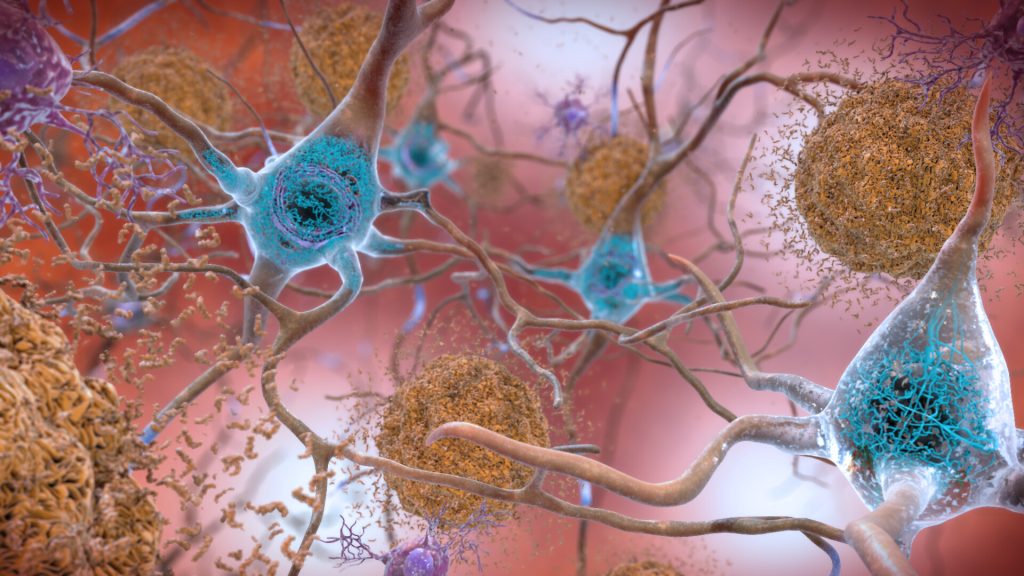
Cholesterol manufactured in the brain appears to play a key role in the development of Alzheimer’s disease, new research indicates.
Scientists found that cholesterol produced by cells called astrocytes is required for controlling the production of amyloid beta, a sticky protein which forms the characteristic plaques in patients with Alzheimer’s. These plaques have been the target of efforts to remove or prevent them in the hopes that this could treat or prevent Alzheimer’s.
The new findings offer important insights into how and why the plaques form and may explain why genes associated with cholesterol have been linked to increased risk for Alzheimer’s. The results also provide scientists with important direction as they seek to prevent Alzheimer’s.
“This study helps us to understand why genes linked to cholesterol are so important to the development of Alzheimer’s disease,” Heather Ferris, MD, PhD, Researcher, UVA’s Division of Endocrinology and Metabolism. “Our data point to the importance of focusing on the production of cholesterol in astrocytes and the transport to neurons as a way to reduce amyloid beta and prevent plaques from ever being formed.”
The work sheds light on the role of astrocytes in Alzheimer’s disease. Scientists have known that these common brain cells undergo dramatic changes in Alzheimer’s, but they have been uncertain if the cells were suffering from the disease or contributing to it. The new results suggest the latter.
The scientists found that astrocytes help drive the progression of Alzheimer’s by making and distributing cholesterol to brain cells called neurons. This cholesterol buildup increases amyloid beta production and, in turn, fuels plaque accumulation.
Normally, the buildup of amyloid beta is limited because cholesterol is kept quite low in neurons. But in Alzheimer’s, the neurons are no longer able to regulate amyloid beta, leading to plaque formation.
Blocking the astrocytes’ cholesterol manufacturing “robustly” decreased amyloid beta production in lab mice, the researchers reported. While it is presently unknown whether this could be applied in people to prevent plaque formation, the researchers believe that further research is likely to yield important insights that will benefit the battle against Alzheimer’s.
The fact that amyloid beta production is normally tightly controlled suggests an important role in brain cells, the researchers said. Doctors may therefore need to be cautious about blockage or removal of amyloid beta. Additional research into the discovery could shed light on how to prevent the over-production of amyloid beta as a strategy against Alzheimer’s, the researchers believe.
“If we can find strategies to prevent astrocytes from over-producing cholesterol, we might make a real impact on the development of Alzheimer’s disease,” Dr Ferris said. “Once people start having memory problems from Alzheimer’s disease, countless neurons have already died. We hope that targeting cholesterol can prevent that death from ever occurring in the first place.”

